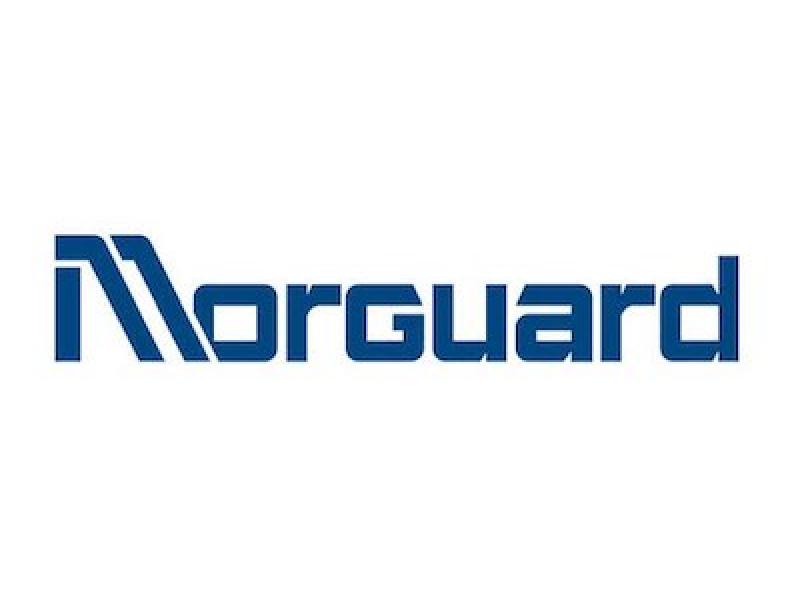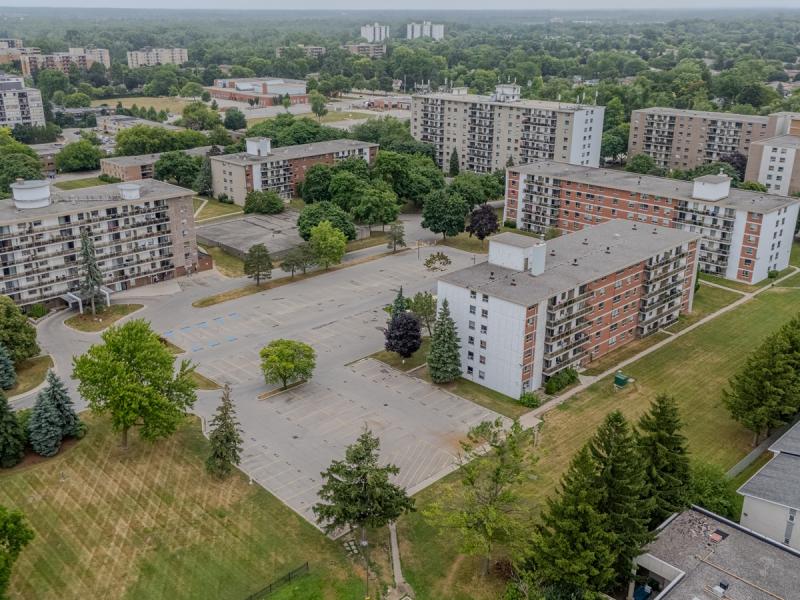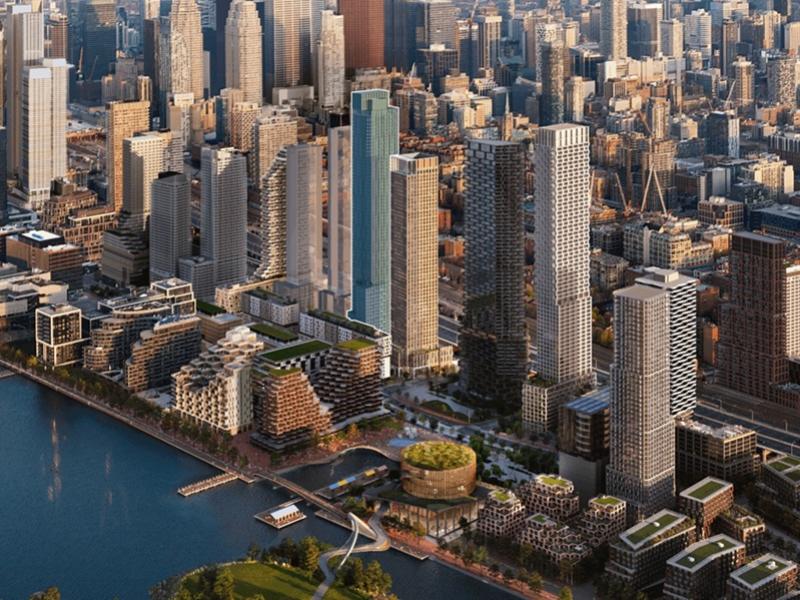
A view of downtown Montreal. (Google Maps)
Montreal’s downtown office availability rate could approach 25 per cent by 2027 should a worst-case scenario of employees working from home and tenants reducing space continue, attendees of the Montreal Real Estate Forum on June 2 were told.
By comparison, the downtown vacancy rate stood at 16.9 per cent at the end of Q1 2022, said Sylvain Leclerc, executive vice-president, Quebec at Altus Group. Leclerc and Marie-France Benoit, director of insights, Canada at Avison Young, were discussing the performance of Montreal’s real estate market.
The worst-case scenario in 2027 would occur if tenants reduced their office holdings by 30 per cent when their leases expire, due to the hybrid work model, Leclerc said.
Benoit said the work-from-home movement is currently strong. Remote-only jobs comprise 15 per cent of all job postings in Canada in the finance and insurance sector.
A more optimistic Montreal office outlook
However, on the bright side, Benoit noted that based on cellphone data, there was a 49.5 per cent increase in office activity between Feb. 28 and April 29 in Montreal, suggesting a major return to the office in recent months.
Others were much more upbeat about Montreal’s office leasing scene.
“Forget everything Altus told you this morning,” said Christopher Thorne, managing director, leasing, Eastern Canada at Allied Properties REIT, during a session on Montreal’s office market. “The closures are behind us; mask mandates are in the past.”
After sustaining eight straight quarters of negative net absorbency, “what we’re seeing is a market that’s really picking up steam,” Thorne said. Allied is seeing many new entrants in the market, namely from the tech world.
Thorne said Allied has signed three key anchor transactions with outside players in recent months. Sixty-five per cent of the space Allied leased in Q1 was to tenants who are new to the market or to existing tenants who are expanding.
Allied’s leasing and acquisitions
Over the last two quarters, the deals Allied signed had weighted maturities of about 6.5 years, Thorne said.
“I don’t think you look at that and see a soft market. I see people are coming into the market and are prepared to commit long-term to Montreal.”
Thorne said over the next 12 months, Montreal’s office market will take steps forward and steps back, as tenants try to rationalize space because of the hybrid work model.
However, the corollary to that is “a lot of the big space users, specifically tech, are coming to us telling us they have very aggressive hiring pipelines.”
Thorne added Allied’s ongoing transformation of 1001 Robert-Bourassa (formerly known as 700 de la Gauchetière) aims to provide users with well-adapted public and private spaces to meet, collaborate and host events of all sizes.
Allied bought the 28-storey, 895,354-square-foot tower from Dream Office REIT for $322.5 million in 2019.
1001 Robert-Bourassa “is a really important project for Allied, not only in terms of this building, but really the evolution of the brand, because what it’s going to allow us to do is elevate what we do” in cities across the country.
“We need to change the way that we service clients in our buildings.”
GI Quo Vadis, Asgaard strategies
Chloe Soucy, vice-president, leasing and operations at GI Quo Vadis, which has transformed several former industrial buildings into offices, said her company is complying with tenants’ requests for exterior spaces. Quo Vadis is leasing spaces on roofs to give tenants their own terraces and gardens.
Asked whether many of Montreal’s class-B buildings, some of which are vacant, will be converted to residential, Massimo Francischiello, president of Asgaard Real Estate Services, said: “A well-kept, well-run B-class building is a great building to be in.
“The problem is the C-class buildings. A lot of landlords don’t reinvest in the C-class buildings.”
The cost to convert buildings is very high and the way to go is to reposition them. “If you invest in your building, you will get the return,” said Francischiello, whose company leases Groupe Mach’s properties.
As for new office space downtown, Francischiello said planned office spaces at the Quartier des lumières development at the site of the former Maison de Radio-Canada on René Lévesque Boulevard East will only see the light of day in 2026.
“I’m quite happy with that. All office needs will be settled down by then.” The project could see 800,000 square feet of office space and “I think there will be room for it in 2025-2026.”
Record levels of Montreal investment
At another session on investment in Montreal, Scott Speirs, executive vice-president, national investment team, capital markets at CBRE, said 2021 was a record year for investment in Greater Montreal with over $10 billion in transactions.
Q1 2022 “was an absolute blockbuster quarter,” with more than $7 billion in trades. While much of that was due to the Cominar transaction, even if that deal is removed, there was more than 60 per cent year-over-year growth, a significant record for investment volumes in the GMA.
Several major players have entered the Montreal market, he said.
For example, Blackstone Real Estate is investing in all asset classes and recently spent more than $230 million to buy two major office properties in downtown Montreal from Kevric – 1100 Atwater and the mixed-use Air Canada-Altoria tower.
Blackstone is excited about Montreal’s burgeoning gaming, AI, life sciences and biotech industries, said Adam Leslie, managing director, real estate at Blackstone.
In addition, Speirs said Nicola Wealth made its first acquisitions in Montreal this year, Canadian Urban is investing across all asset classes and large national developers First Gulf and Beedie are now targeting the market.











